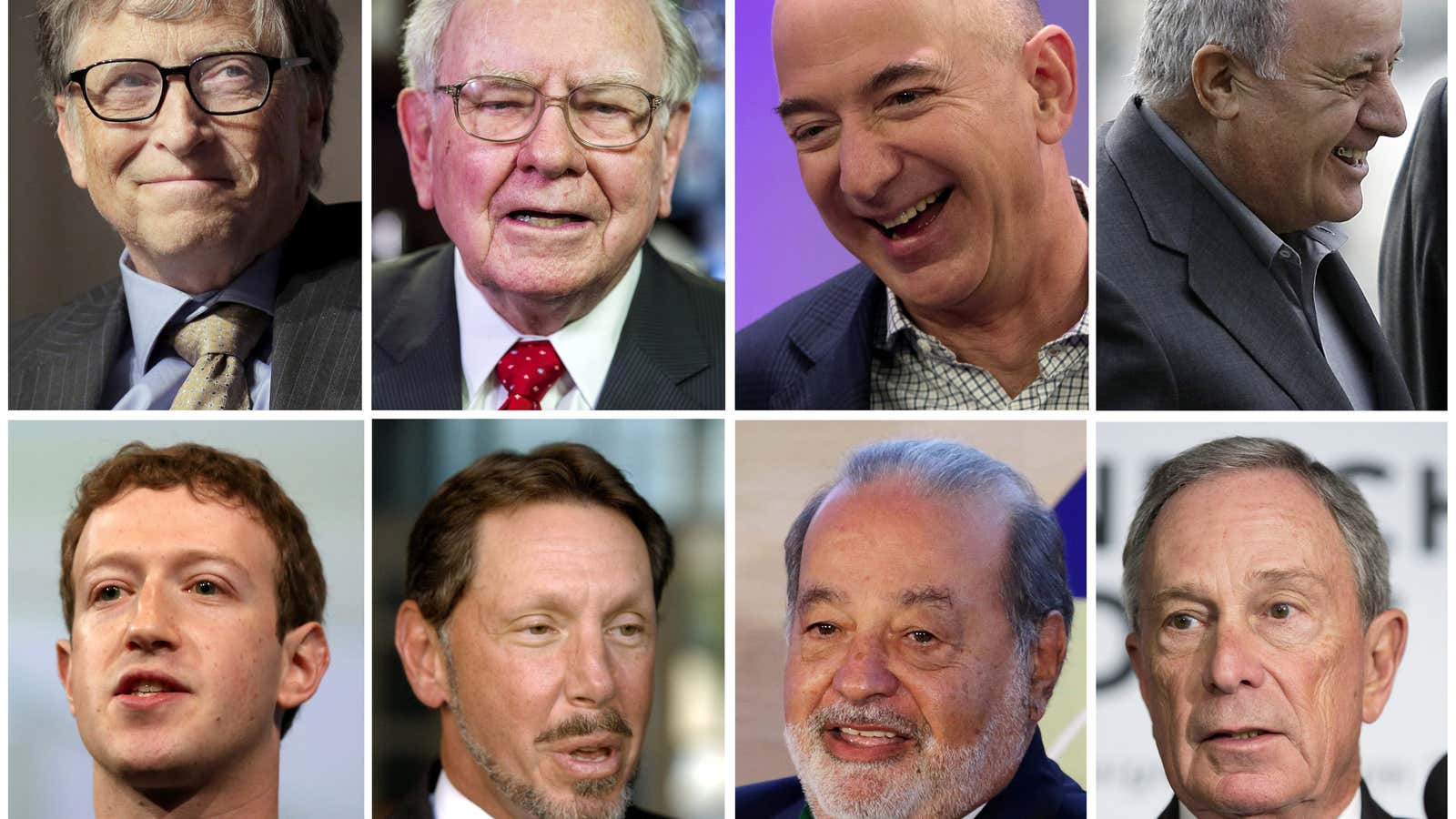In the end, maybe it’s inevitable that the solution to America’s health-care crisis won’t come from government, business, or academia, but from the charitable impulses of billionaires.
Jeff Bezos, Warren Buffett, and Jamie Dimon announced yesterday (Jan. 30) they’re throwing their wealth, power, and influence behind a new enterprise to provide the employees of their businesses with cheap and effective health care. If it works, they will expand the new company’s reach beyond Amazon, Berkshire Hathaway, and JPMorgan Chase to “potentially, all Americans,” Dimon said in their statement.
As wealth inequality reaches unprecedented levels, we are increasingly looking to the world’s billionaires to save us and our broken institutions.
Bill Gates is using his fortune to cure diseases that have long been out of reach of governments and the World Health Organization. Elon Musk’s SpaceX aims to supplant NASA, and commuters frustrated, with the state of American infrastructure, look to Musk’s Boring Company to whisk them from city to city via hyperloop.
Bezos has already swooped in to save the Washington Post, restoring the once-struggling news organization into a vital journalistic enterprise, and dozens of beleaguered American cities hoped he would transform them into prosperous tech hubs by bestowing them with Amazon’s second headquarters (alas, the honor will likely go to a city that doesn’t need the help.)
A loss of faith as the super-rich win
Decades of expanding the reach of the US government for the benefit of ordinary Americans has given way to a steady erosion in its ambition and faith in its power to help. Modest initiatives like the expansion of healthcare under Obama have been undermined, while huge needs in education and infrastructure have gone unaddressed. The mechanisms of government have instead been engineered to further serve the mega-rich, through means both overt (a new tax regime that benefits billionaires over millionaires) and covert (a lobbying firm that secretly does the bidding of hedge funds).
Government, we’ve been told since the time of Ronald Reagan, is the problem. Free markets, we’ve been lectured, will provide the solutions to what ails America. But the statement from these titans of commerce makes clear that capitalism won’t fix health care. The effort will be “free from profit-making incentives and constraints,” the statement said. It’s essentially a philanthropic endeavor, backed by the tycoons of our new Gilded Age.
Private wealth built America’s universities, hospitals, libraries, and museums, as the Rockefellers, Carnegies, and Mellons used their largesse to ensure their legacies and launder their reputations. That era ended in 1913, with the introduction of the income tax. As money flowed to the government, the government expanded and stitched together programs to help and protect Americans.
A sorry state of financial affairs
Now, the social safety net is under sustained attack, while even taxes can’t slow the growth of the huge fortunes of the men that wield them. The combined wealth of Bezos and Buffet is $212 billion (Dimon is a pauper by comparison, worth a mere $1.3 billion), and their ambitions are equally outsized.
Philanthropy can be a powerful force. It can move faster and more decisively than governments, and put its money in places no business can consider. Charity has educated millions and treated the illnesses of billions. Still, philanthropy’s strengths are also its weakness. It’s unaccountable and undemocratic. It’s money flows to its donor’s priorities, not society’s needs. And the more muscular philanthropy becomes, the more reliant governments become on its generosity.
We should all hope Mssrs. Bezos, Buffett, and Dimon are successful in their endeavor to fix the US health-care system. We should also lament that we need them to.
